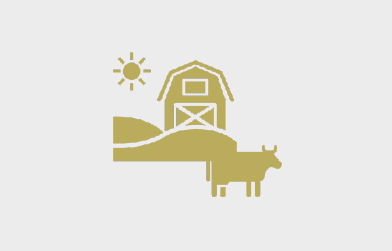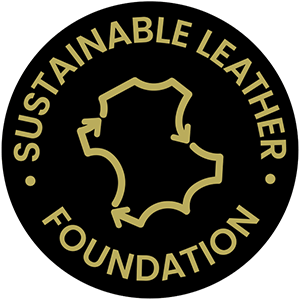Animal Welfare

Working With Farmers
Working With Farmers
Responsible sourcing is a governance requirement of the whole leather value chain.
The Sustainable Leather Foundation (SLF) believes that through due diligence and working in partnership with farmers, meatpackers and leather manufacturers, it is possible to sustain society through the production of food and products made from leather in a way that meets the ethical and environmental responsibilities of our current and future generations.
Responsible sourcing is a governance requirement of the whole leather value chain.
The Sustainable Leather Foundation (SLF) believes that through due diligence and working in partnership with farmers, meatpackers and leather manufacturers, it is possible to sustain society through the production of food and products made from leather in a way that meets the ethical and environmental responsibilities of our current and future generations.
Animal Welfare is a well documented concern and a known risk to be considered when sourcing raw material in the leather value chain. Sustainable Leather Foundation works to foster strong links that support the basic principles and provide a starting point for understanding consumer and society expectations. SLF recognises that there are no globally applicable laws or regulations that apply consistently to all and therefore work to provide a standard for a harmonised approach to ensuring the highest standards of Animal Welfare.
The hides and skins of livestock, as a byproduct of meat production, provide the raw material from which leather is manufactured and without livestock the leather industry would not exist.
The responsibility of this upstream element primarily rests with farmers, ranchers and meatpackers. However, consumers should be able to know about the integrity of their leather products and the leather industry cannot tacitly accept bad animal welfare practices through opaque or undisclosed raw material sourcing.
Animal Welfare is a well documented concern and a known risk to be considered when sourcing raw material in the leather value chain. Sustainable Leather Foundation works to foster strong links that support the basic principles and provide a starting point for understanding consumer and society expectations. SLF recognises that there are no globally applicable laws or regulations that apply consistently to all and therefore work to provide a standard for a harmonised approach to ensuring the highest standards of Animal Welfare.
The hides and skins of livestock, as a byproduct of meat production, provide the raw material from which leather is manufactured and without livestock the leather industry would not exist.
The responsibility of this upstream element primarily rests with farmers, ranchers and meatpackers. However, consumers should be able to know about the integrity of their leather products and the leather industry cannot tacitly accept bad animal welfare practices through opaque or undisclosed raw material sourcing.
The responsibility of this upstream element primarily rests with farmers, ranchers and meatpackers. However, consumers should be able to know about the integrity of their leather products and the leather industry cannot tacitly accept bad animal welfare practices through opaque or undisclosed raw material sourcing.
The responsibility of this upstream element primarily rests with farmers, ranchers and meatpackers. However, consumers should be able to know about the integrity of their leather products and the leather industry cannot tacitly accept bad animal welfare practices through opaque or undisclosed raw material sourcing.
Animal Welfare at a glance:
The 5 Freedoms:
- Freedom from thirst, hunger and malnutrition
- Freedom from discomfort and exposure
- Freedom from pain, injury and disease
- Freedom from fear and distress
- Freedom to express normal behaviour.
Get Involved
For more information contact us on the button below:

Animal Welfare at a glance:
The 5 Freedoms:
- Freedom from thirst, hunger and malnutrition
- Freedom from discomfort and exposure
- Freedom from pain, injury and disease
- Freedom from fear and distress
- Freedom to express normal behaviour.
